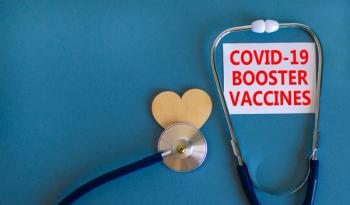
Minimal Stroke Risk with COVID-19 Boosters in Older Adults, Though Concerns Arise When Paired with High-Dose Flu Vaccines
The risk of stroke is not as likely for adults 65 years and above who have taken the Pfizer-BioNTech and Moderna COVID-19 bivalent vaccines. However, there may be an elevated risk of stroke when COVID boosters are paired with high-dose flu vaccines, particularly in adults 85-years-old and above.
The risk of stroke is not as likely for adults 65 years and above who have taken the Pfizer-BioNTech and Moderna COVID-19 bivalent vaccines. However, researchers of a recent study published in
These new findings stemmed from data found in January 2023 from the Centers for Disease Control and Prevention (CDC) Vaccine Safety Datalink (VSD).
The data identified a preliminary signal of ischemic stroke following vaccination of the Pfizer-BioNTech Omicron booster in those 65 years and older.
In this recent self-controlled study, researchers evaluated stroke risk among 5,397,278 Medicare fee-for-service beneficiaries aged 65 years receiving a Pfizer-BioNTech (BNT162b2; WT/OMI BA.4/BA.5) or Moderna (mRNA-1273.222) COVID-19 bivalent vaccine, high-dose flu vaccines and COVID-19 bivalent vaccines paired with high-dose flu vaccines, from August 31 to November 6, 2022.
The primary analysis revealed no significant association between the boosters and the risk of stroke.
However, it was found the oldest group evaluated (85 years) experienced an elevated rate of NHS and mini strokes 1 to 21 days after receiving the Pfizer-BioNTech booster alongside a high-dose flu vaccine.
The results were not consistent authors noted, with elevated risks varying between 22 to 42 days and 1 to 21 days depending on the specific combination of vaccines.
The research also found a slightly elevated risk of stroke following flu vaccines without COVID boosters. This challenges previous findings that reported no stroke risk associated with flu vaccines.
Study authors highlighted the importance of considering stroke risk following vaccination against the benefits of receiving a flu vaccine.
There were some limitations in the study including no comparison between vaccinated and unvaccinated populations, as well as potential biases from underreported COVID cases and violating certain assumptions in the analysis. This suggests further research to better understand the association between flu vaccination and stroke.
Despite these limitations, authors stress the research emphasized the safety of COVID boosters in older populations.
The study also used the CMS Medicare FFS database, a large and representative source, and the employment of self-controlled study designs, minimizing biases.
Overall, the study reassured that the benefits of these bivalent vaccines outweigh their risks in those 65 years and older.
Newsletter
Get the latest industry news, event updates, and more from Managed healthcare Executive.























